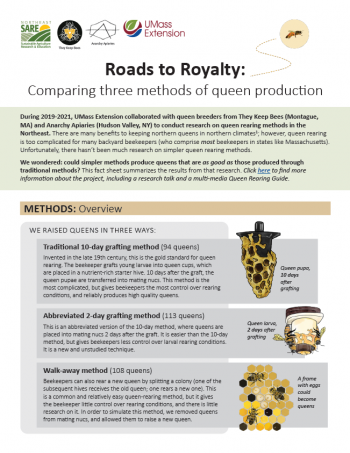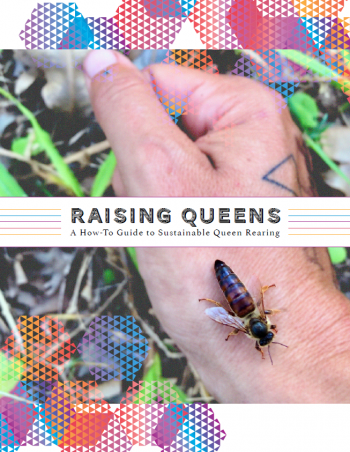48-Hour Queen Project
Testing Queen Rearing Methods in the Northeast
High quality queens are critical for healthy hives. And for beekeepers who live in northern climates like Massachusetts, there is evidence that northern-adapted queens are better for winter survival. If northern beekeepers raised their own queens, or purchased queens from local queen rearers, it could improve the health of our bees and the sustainability of beekeeping in New England. However, traditional methods of queen rearing are complicated and resource-intensive; at the same time, simpler queen rearing methods like walk-away splits may produce sub-par queens. (Though there has been little research on the emergency queens produced through walk-away splits.)
In 2019, queen rearers Ang Roell (They Keep Bees, Montague MA) and Sam Comfort (Anarchy Apiaries, Hudson NY) approached UMass Extension because they wanted to study these simpler queen rearing techniques. With funding from a Northeast SARE Partnership Grant, we launched this research project in the spring of 2020.
Our goal was to test whether queens produced through simpler methods (walk-away splits and an abbreviated 48-hour grafting technique) are indeed lower quality that traditionally-reared queens. We raised queens using all three methods (traditional, 48-hour and walk-away) and compared queen take, size and reproductive characteristics between groups. Overall, during the summer of 2020, we reared 314 queens, and sent a subset of 51 queens to the Tarpy lab in North Carolina for analysis.
Surprisingly, we found no difference in queen quality between the three groups. This suggests that more research should be done on walk-away splits and 48-hour grafting techniques - and that these methods could be viable queen rearing strategies in New England.
This material is based upon work supported by the National Institute of Food and Agriculture, U.S. Department of Agriculture, through the Northeast Sustainable Agriculture Research and Education program under subaward number ONE19-326.
To Learn about Our Results:
-Read more about the project on Northeast SARE's website, here
-Check out our  Queen Research Fact Sheet:
Queen Research Fact Sheet:
-Explore our multi-media  Queen Rearing Guide:
Queen Rearing Guide:
-Watch this presentation by Extension Educator Hannah Whitehead (hosted by the Middlesex County Beekeepers Association):
-Check out some research photos from our research!
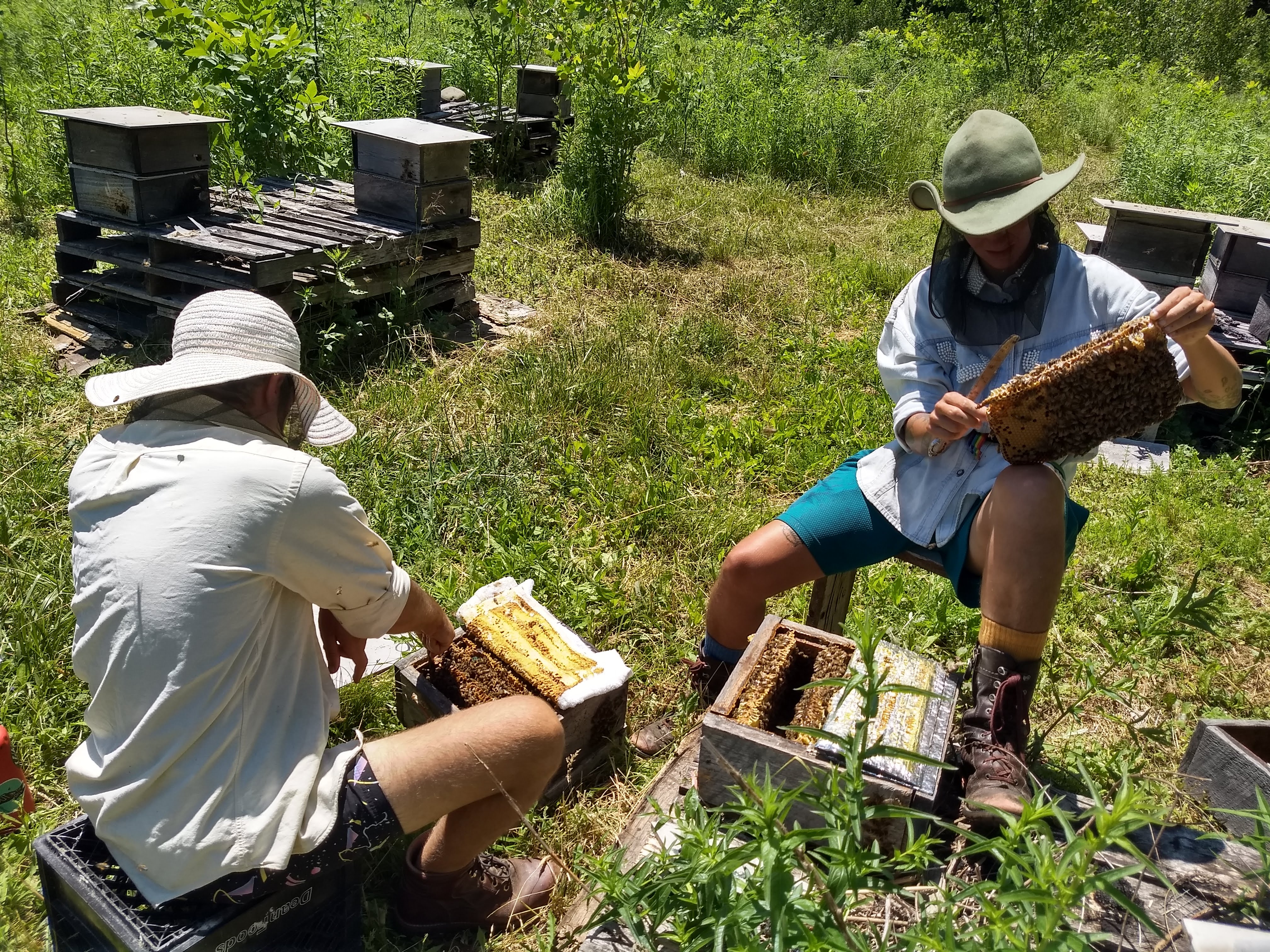 Ang Roell and Bi Kline evaluate research queens (Photo: H. Whitehead)
Ang Roell and Bi Kline evaluate research queens (Photo: H. Whitehead)
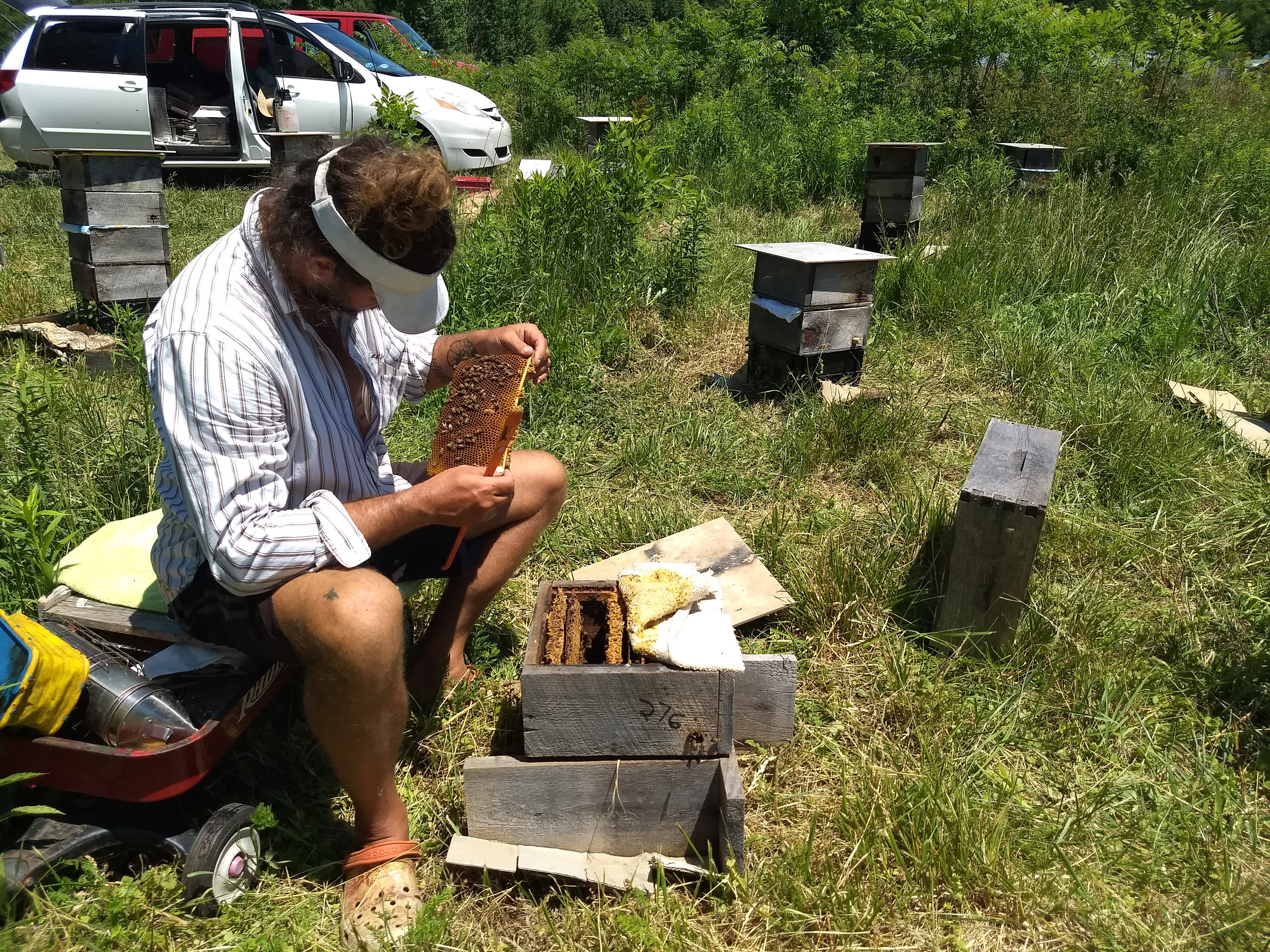 Sam Comfort evaluates a research queen (Photo: H. Whitehead)
Sam Comfort evaluates a research queen (Photo: H. Whitehead)
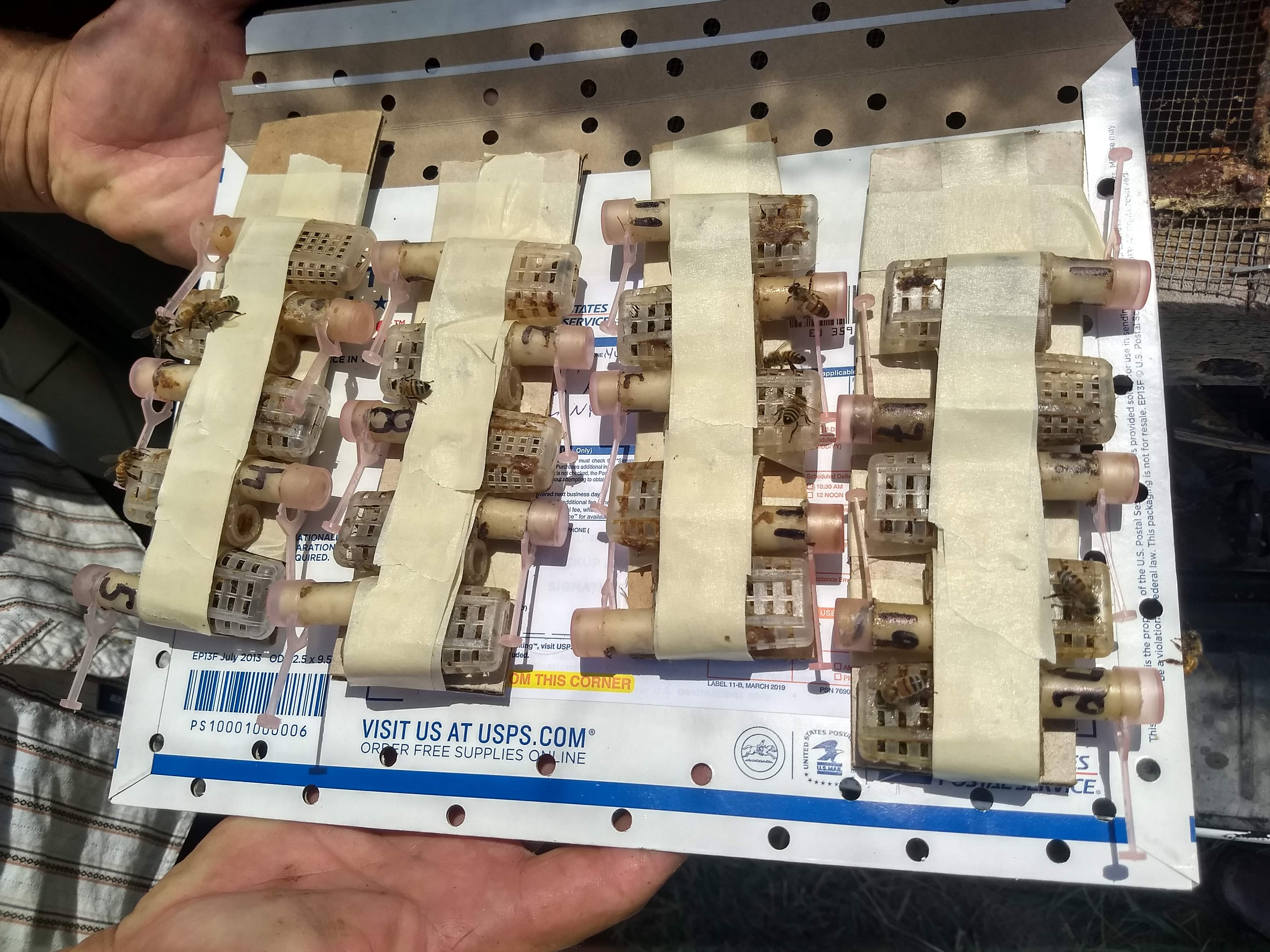 Honey bee queens, all packed up and ready to ship for analysis (Photo: H. Whitehead)
Honey bee queens, all packed up and ready to ship for analysis (Photo: H. Whitehead)

